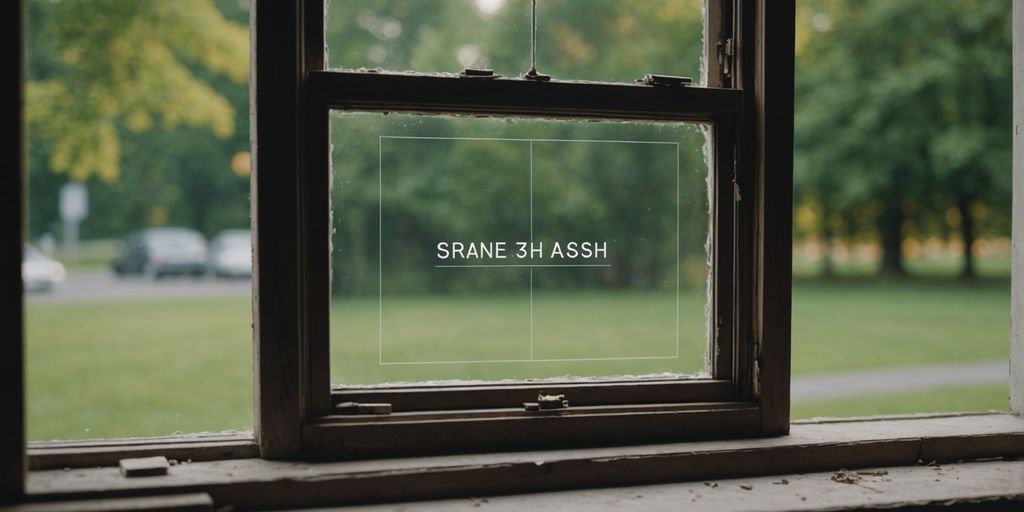
Understanding the Different Parts of a Window
Windows are essential parts of our homes, providing light, fresh air, and views of the outdoors. However, they are made up of many parts that work together to function properly. Knowing these parts can help you choose the right windows for your home and spot any problems that might need fixing.
Key Takeaways
- Understanding the parts of a window helps in making informed decisions for replacements or repairs.
- The window frame includes the head jamb, side jambs, and sill, which support the window structure.
- Window sashes, including the upper sash, lower sash, and meeting rail, allow for the movement of the window.
- Different types of window panes, such as single, double, and triple pane, offer varying levels of insulation.
- Proper maintenance of window hardware and weatherstripping is crucial for the longevity and efficiency of windows.
Anatomy of a Window Frame
The window frame is the outer structure that holds the window in place. It is made up of three main parts: the head jamb, side jambs, and sill. Each part plays a crucial role in the window's overall function and durability.
Understanding Window Sashes
A window sash is the part of the window that holds the glass and the framework around the glass. These are the movable parts of a window that allow it to open and close. Most windows have two sashes: the upper sash and the lower sash.
Upper Sash
The upper sash is usually fixed in place and does not move. It is designed to stay put while the lower sash moves up and down. This part of the window is crucial for maintaining the structure and stability of the window.
Lower Sash
The lower sash is the part of the window that moves. It slides up and down to open and close the window. This movement is essential for ventilation and allows fresh air to enter the room. The lower sash must be well-insulated to ensure energy efficiency.
Meeting Rail
The meeting rail is where the upper and lower sashes meet. This rail is a critical element for double-hung windows, facilitating seamless sash movement. Proper alignment of the meeting rail ensures that the window operates smoothly and efficiently.
The meeting rail is a critical element for double-hung windows, facilitating seamless sash movement.
In summary, understanding the different parts of a window sash helps in maintaining and choosing the right windows for your home. Properly functioning sashes are essential for both ventilation and energy efficiency.
Exploring Window Panes
Single Pane
A single pane window has just one piece of glass. These windows are simple and often found in older homes. They don't insulate well, so they might not be the best choice for cold climates.
Double Pane
Double pane windows have two pieces of glass with a spacer in between. This spacer helps to insulate the window, making it more energy-efficient. Double pane windows are a popular choice because they help keep homes warm in winter and cool in summer.
Triple Pane
Triple pane windows take insulation to the next level with three pieces of glass. They are the best at keeping the temperature inside your home steady. These windows are great for very cold or very hot places.
Triple pane windows offer the highest level of insulation, making them ideal for extreme climates.
Window Hardware Components
Window hardware is essential for the proper functioning and security of your windows. These components ensure that your windows operate smoothly and securely. Here are the main parts:
- Locks: These are crucial for keeping your windows secure. A good lock, like a sliding glass door lock, prevents unauthorized access.
- Handles: Handles allow you to open and close your windows easily. For sliding windows, a sliding door handle is commonly used.
- Hinges: Hinges are the pivot points that allow windows to swing open or closed. The Truth 201 series standard duty 4-bar hinge is a popular choice for its durability.
| Component | Function |
|---|---|
| Locks | Secure the window |
| Handles | Open and close the window |
| Hinges | Allow the window to pivot |
Proper maintenance of these hardware components can extend the life of your windows and improve their performance.
In addition to these, there are other hardware items like balances, rollers, and weatherstripping that play a role in window functionality. For example, a bi-fold closet door snugger helps keep closet doors secure, showcasing the variety of hardware available for different types of windows and doors.
Weatherstripping and Seals
Types of Weatherstripping
Weatherstripping helps seal the gaps between the different parts of a window sash and frame. In the past, it was made of metals like brass, but now it's usually made of flexible materials like silicone, rubber, vinyl, or foam. Modern weatherstripping is easy to install and provides excellent protection against the elements. For example, a product like the wrs .190" x .141" black bulb seal weather stripping - 24 ft roll offers superior weatherability and chemical resistance, making it ideal for windows.
Importance of Seals
The connection between the spacer and the glass panes is called the seal. This seal is crucial for keeping the insulating gas between the panes of an insulated glass unit (IGU). Over time, window seals can deteriorate, usually after 5 to 7 years, leading to fogging and reduced energy efficiency. A strong adhesive creates the window seal, which is essential for maintaining the window’s insulating properties.
Maintenance Tips
To keep your weatherstripping and seals in good condition, regular maintenance is key. Here are some tips:
- Inspect regularly: Check for any signs of wear or damage.
- Clean gently: Use mild soap and water to clean the weatherstripping and seals.
- Replace when needed: If you notice any cracks or gaps, it's time to replace the weatherstripping.
Keeping your weatherstripping and seals in good shape ensures your windows remain energy-efficient and protected against the elements.
Specialized Window Parts
Grilles
Grilles are decorative elements that divide a window into smaller sections. They can be purely aesthetic or serve a functional purpose. Grilles can be found in various styles and materials, adding a unique touch to your windows. They are often used in traditional and colonial-style homes.
Muntins
Muntins are the strips that separate and hold individual panes of glass within a window sash. They are essential for both the structural integrity and the aesthetic appeal of the window. Muntins can be found in many older homes and are a key feature in historical window designs.
Screens
Screens are crucial for keeping insects and debris out while allowing fresh air to flow into your home. They come in various materials and can be easily replaced if damaged. Window screen repair parts are readily available for those who need to fix or replace their screens. Screens are especially important in areas with a lot of bugs or pollen.
Understanding the different parts of a window can help you make informed decisions when it comes to repairs and replacements. Whether you're looking for biltbest window cranks or replacement parts for 1984 anderson casement windows, knowing what you need is half the battle.
For more detailed window hardware and door hardware listings with product details and pricing, you can visit specialized websites. Whether you need pgt window parts or andersen window parts, there's a wide range of options available to suit your needs.
Energy Efficiency Features
Low-E Coatings
Low-E, short for Low-Emissivity, refers to a special coating applied to window glass. This coating helps reflect sunlight away from the window, which can prevent UV rays from damaging your home's interior. Additionally, it helps keep your home cooler in the summer and warmer in the winter.
Gas Fills
Windows can be filled with gases like argon or krypton, which are denser than air. These gases help reduce heat loss through the window glass, making your windows more energy-efficient. This is especially useful in colder climates where heat retention is crucial.
Thermal Breaks
Thermal breaks are barriers within the window frame that help reduce the transfer of heat. By interrupting the path of heat, these breaks can significantly improve the energy efficiency of your windows. This feature is particularly important for metal window frames, which can conduct heat easily.
Investing in energy-efficient windows can lead to significant savings on your energy bills over time. It's a smart choice for both your wallet and the environment.
Conclusion
Understanding the different parts of a window is more than just a lesson in vocabulary; it's a practical guide to making informed decisions about your home. Whether you're looking to replace old windows, perform repairs, or simply want to know more about how your windows work, this knowledge is invaluable. By familiarizing yourself with the various components, you can better communicate with professionals, ensure proper maintenance, and even enhance the beauty and functionality of your living space. Remember, windows are not just openings to the outside world; they are essential elements that contribute to the comfort and efficiency of your home.
Frequently Asked Questions
Why is it important to know the parts of a window?
Knowing the parts of a window helps you understand how it works, how to maintain it, and how to talk to professionals about repairs or replacements.
What is a window frame made of?
A window frame can be made from materials like aluminum, fiberglass, wood, or vinyl. Each material has its own benefits and drawbacks.
What is the difference between single pane and double pane windows?
Single pane windows have one layer of glass, while double pane windows have two layers with a space in between for better insulation.
How do window locks work?
Window locks secure the window to prevent it from being opened from the outside. They come in different types, like latch locks and keyed locks.
What are window sashes?
Window sashes are the parts of the window that hold the glass panes. They can move up and down or side to side, depending on the window type.
Why is weatherstripping important for windows?
Weatherstripping helps seal gaps around the window to keep out drafts, moisture, and insects. It also improves energy efficiency by keeping your home warmer in winter and cooler in summer.
